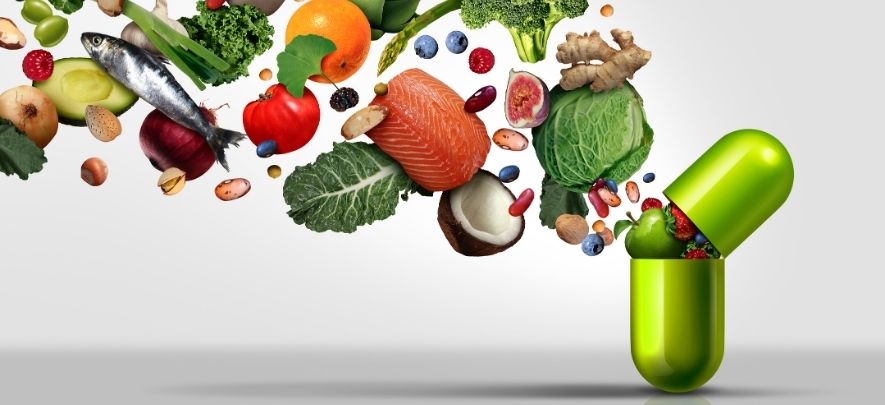How to sell food supplements in India?

Legal & Compliance
201 week ago — 7 min read
Food supplements are not new to India. But elongated working hours increased stress, and a changed lifestyle has enhanced their importance. The desire for a healthier diet and physical fitness has made it an attractive segment for potential sellers.
Food supplements come under the purview of the Food Safety and Standards Authority of India – or FSSAI – and are governed by the Food Safety and Standards Act, 2006. The Act states the following – ‘no person shall manufacture, distribute, sell or import any novel food, genetically modified articles of food, irradiated food, organic foods, foods for special dietary uses, functional foods, nutraceuticals, health supplements, proprietary foods and such other articles of food which the Central Government may notify in this behalf’.
Categories of food supplements that can be sold in India
A Food Business Operator (FBO) intending to manufacture or sell food supplements needs a license in order to do so. The regulation for that is relatively new. It is known as the Food Safety and Standards (Health Supplements, Nutraceuticals, Food for Special Dietary Use, Food for Special Medical Purpose, Functional Food and Novel Food) Regulations, 2016. This regulation has been in effect since 1 January 2018. It covers the following type of foods:
- Health supplements – They are made of concentrated sources of one or more nutrients with established nutritional effects. They are formulated to supplement the normal diet of a person and can be taken if the diet is not enough. They can be taken by healthy individuals.
- Nutraceuticals – They are naturally occurring ingredients that are extracted, isolated, or purified from food or non-food sources. If taken in a measured manner, they help maintain good health. They can be taken by healthy individuals.
- Food for Special Dietary Use (FSDU) – They are specially formulated to satiate specific dietary requirements for specific physiological or health conditions. Physiological conditions may include sportspeople, pregnant women, ageing population, among others. Meanwhile, health conditions may include underweight and obese people, hypertension, etc.
- Food for Special Medical Purposes (FSMP) – They are meant for people with reduced ability to digest, absorb, or metabolize regular food. They also work to supplement such people’s nutritional requirements. They can be used only under medical supervision.
- Functional foods – They are specially processed to go beyond fulfilling nutritional requirements. They enhance a particular physiological response and/or reduce the risk of certain diseases and disorders.
- Novel foods – They are those foods, ingredients, or methods that were not previously used for human consumption.
- Food with added prebiotic ingredients – They include prebiotic ingredients that are not food themselves but are beneficial as they modulate gut microbiota.
- Food with added probiotic ingredients – Probiotics are live microorganisms that provide certain demonstrated health benefits.
- Non-foods
- Speciality food containing plant or botanical ingredients – These are foods that have a history of safe usage.
These are just brief descriptions of the classifications to offer an idea regarding what constitutes a food supplement in India.
Important aspects to keep in mind before selling health supplements
The previous section outlines the classification of foods that can be sold as supplements. However, there are other things that prospective food supplement sellers need to keep in mind.
Food supplements can be sold in powder, capsule, tablet, and syrup form. The number of nutrients added to the supplements cannot go beyond the Recommended Daily Allowance (RDA) set by the Indian Council of Medical Research. In the case of health supplements, the individual nutrient content cannot be less than 15% of RDA. However, if the claim is of higher nutrient content, it cannot be less than 30% of the RDA.
Plants or botanicals in naturally occurring forms cannot be considered food supplements. Also, their minimal process forms, either juice or cook, cannot consider a health supplement, nutraceutical, FSDU, or FSMP. The formulation of supplements has to be on sound medical principles and their benefits have to back up by valid data. Hormones, steroids, and psychotropic drugs cannot be added to these food items.
Labeling requirements, some of which are presented below, are also necessary to follow:
- the words ‘HEALTH SUPPLEMENT’
- If the product is a nutraceutical, then the word ‘NUTRACEUTICAL’ and its common name
- If other categories of supplements then label like ‘FOOD FOR SPECIAL DIETARY USE’, ‘FOOD FOR SPECIAL MEDICAL PURPOSE’, ‘PROBIOTIC FOOD’, etc.
- an advisory warning ‘NOT FOR MEDICINAL USE’ prominently written
- Its content, purpose, and age target age group
- A statement highlighting that the supplement cannot use as a substitute for a regular diet
Documents and licenses required
- An FBO which intends to sell food supplements and understands what they classify as will need to apply for a license with the FSSAI.
- It needs to have a NOC from the center.
- It needs to use Form B with the application.
- The registration and PAN of the company
- Tax documents of directors and partners
Also read: FSSAI – Food licensing
To explore business opportunities, link with us by clicking on the 'Connect' button on our eBiz Card.
Image source: shutterstock.com
Disclaimer: The views and opinions expressed in this article are those of the author and do not necessarily reflect the views, official policy or position of GlobalLinker.
Posted by
Vakilsearch StaffGreetings! We would love to work with you and your company. We look forward to connecting with business houses and MSME's.
View Vakilsearch 's profile
SME Inspirations
Other articles written by Vakilsearch Staff
Know About the 4 Types of Partnership Firms
23 week ago
Most read this week

















Comments
Please login or Register to join the discussion